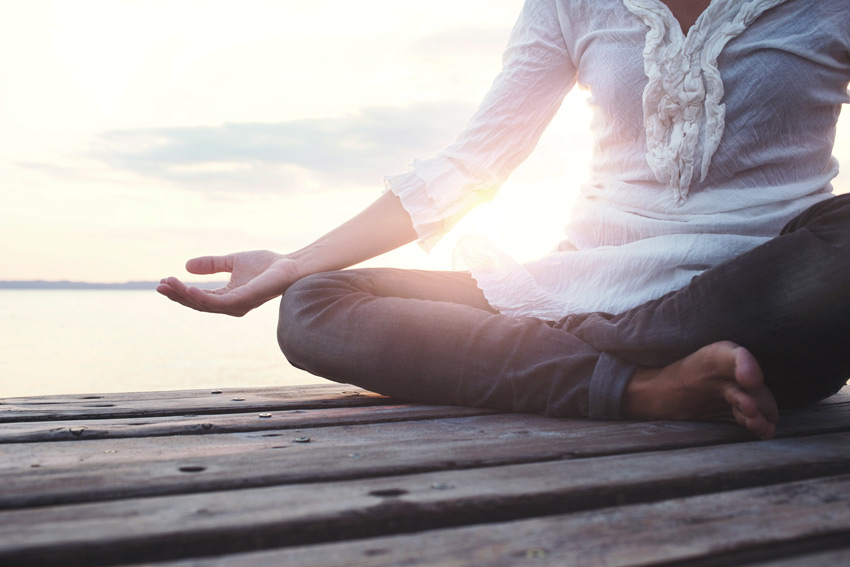Who Uses Meditation & Why?
What do Katy Perry, Tom Hanks, Jerry Seinfeld, and Hugh Jackman all have in common?
Well, aside from being successful entertainers, ridiculously lucky, and incredibly wealthy, all four of these stars experience a lot of stress! It was this mind-altering, physically aggravating presence of stress that drove these celebrities to become students of meditation. Each of them regularly practice meditation as they’ve learned it from the teacher they all share: Bob Roth, the CEO of the David Lynch Foundation.
Both Roth and his charity share a goal: teaching transcendental meditation to people 10 years of age and up–with special outreach directed toward veterans with post-traumatic stress disorder (PTSD), women who have survived domestic violence, and disadvantaged children with difficult home lives.
Benefits of Meditation
It may seem like a gimmick to make a profit: meditate your problems away today! However, if you take a look at an interview between Roth and Ellen Degeneres, you’ll see that over 400 studies show the following benefits of meditation:
- Reduced anxiety
- Reduced depression symptoms
- Less insomnia
- Improved memory
- Improved focus
- Unleashed creativity
If meditation has benefited stars, rich business people, battered women, struggling soldiers, and at-risk children, it could certainly support another population of people for whom stress could trigger life-changing action for the better or for the worse: individuals in recovery from substance use disorders.
The Case for Meditation in Recovery: What It Is & How It Works
Meditation, in its simplest form, is the intentional act of calming the mind and the body and reconnecting the two. An array of meditation types offer different approaches to the practice. Most ancient traditions, like Christianity, Islam, Judaism, Hinduism, and Buddhism, all have their meditative preferences. But, overall there are four main elements that all meditation shares:
- A tranquil, quiet place with little to no distractions
- A comfortable posture (but not too comfy to the point where you’re falling asleep)
- Focus
- An open mind
Once you’re able to gather all of those elements into one space, it’s time to set a time limit (you can do so with a kitchen timer or your phone’s timer), close your eyes, focus on deep, intentional breathing, and observe the flow of thoughts.
What Does It Mean to Observe Your Thoughts?
It means to notice them without engaging in them. Engaging with a thought like, how am I going to get through my to-do list today?, means letting it lead to a whole host of thoughts, plans, and worries. Observing it means to notice its appearance but then return to focusing on the breath. This is, of course, much easier said than done, which is why meditation requires practice.
If you find that you’re engaging with thoughts until you’re completely lost in rumination or fantasy, don’t get down on yourself. You haven’t failed at meditation. When you notice that you’ve strayed, return to the breath. You will probably have to do this over and over and over again.
Over time, you’ll start to notice the types of thoughts that pull you in. Later, you can explore those types of thoughts in your journal or with a therapist or close friend. Many people find it helpful to meditate two or more times a day. Ideally, meditation will become a daily habit that you continue for the rest of your life.
That’s right: meditation combats stress head-on, and it is a life-long practice. Our triggers, stressors, and challenges never go away–so meditation shouldn’t either. It’s something you do for you. And if you feel there’s just no time, think of it this way: there are 1,444 minutes in a day. You can probably spare 20 of those to improve your health and rate of success in recovery.
Speaking of Recovery: Why Is Meditation So Effective in a Drug Rehab Center?
Much of what is dealt with in recovery involves digging through and forgiving childhood trauma, processing emotionally and physically violent experiences, and learning how to handle stress. What residents need during treatment is any activity that’s going to aid their reaching of an emotionally balanced internal environment.
- Clearly, meditation cultivates that balance with neural, emotional, and physical benefits:
- Decreased heart rate
- Reduced respiration rate
- Increased self-awareness and improvements in feelings of well-being
- Better immune health
- Alleviation of chronic pain and headaches
- Increased ability to empathize
All of these benefits lead to an overall reduction in stress, and that’s so important when someone is in a position to break their sobriety and relapse into harmful substance use habits.
Meditation facilitates steadiness in sobriety and helps enormously with managing stress triggers throughout recovery.
St. Gregory Is Here to Help
It’s safe to say that meditation is for everyone, in recovery or not. We deserve to relax, and we’ll feel better and be stronger for it. If you’re struggling with substance use and stress, St. Gregory Recovery Center in Bayard, IA, can help. Reach out to us today to learn more about how we can support you or your loved one through the recovery journey.











